Mozambique: Malnutrition among children under five dropped to 37% in 2013-23
Mozambique: Civil society crucial to guaranteeing human rights, HRW says

DW (File photo; For illustration purposes only) / Citizens demonstrate in Maputo, Mozambique
The 2018 Human Rights Watch (HRW) report highlights Angola and Mozambique as the worst countries for human rights in Southern Africa, and the NGO’s programme director, Iain Levine, is concerned.
The human rights situation in Africa remains worrying, according to the new Human Rights Watch report.
The document points out that violations are worst in southern African countries, especially Angola and Mozambique, where “impunity”, “abuses” and “excessive use of force” by the state undermine citizens’ freedom.
DW Africa spoke to HRW programme director Iain Levine about the role of governments and justice organs in ensuring human rights in those countries.
DW Africa: In Angola, various forms of human rights violations persist. Will the new president be able to change the scenario in this country?
Iain Levine (IL): We have some hope that, after more than 35 years of the José Eduardo dos Santos presidency, there will be improvements in the human rights situation. We have already seen that [the new president] has already made decisions that show that he is independent, but we have not yet seen progress in the area of human rights. Angolans suffers from a series of violations: of the right to freedom of expression, the right to assembly, the right to a free press, as well as abuses by security forces. So there is much to improve on and we are following the situation closely.

DW Africa: In Mozambique, impunity was one of the themes highlighted by the report in the case of murders, abductions and even the issue of the hidden debts. How do you explain the lack of interest shown by the Public Attorney’s Office and even the government in resolving these cases in the courts?
IL: The issue of impunity is one of the main human rights problems in Mozambique. Last week, we released a report on the violation of human rights by the government defence and security forces and Renamo, the largest opposition party: murder, attacks on health posts and enforced disappearances, and noted that there is no progress on the issue of justice.
Unfortunately, there is a tradition of impunity in Mozambique in the face of violations committed by defence and security forces. At this point in the difficult negotiations between the government and Renamo, there are many who say we have to concentrate on the peace process and not on justice, but in fact the opposite is the case. We insist that justice is essential not only for the protection of human rights but also for sustainable peace. And we were disappointed by the Attorney General’s Office failing to hold accountable those who violate Mozambicans’ rights, both on the part of the government and the part of Renamo.
DW Africa: Do you believe that a definitive peace agreement in Mozambique could improve the human rights situation in the country?
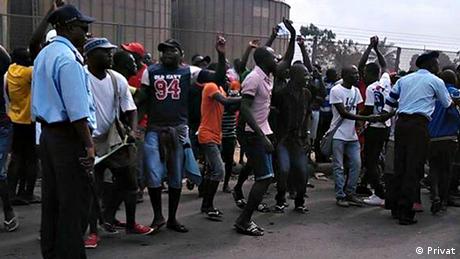
IL: Everything will now depend on political leaders and the commitment of civil society in demanding that the peace process includes justice. We still have some hope that there will be some acknowledgement that, in fact, justice strengthens peace and not the other way round.
DW Africa: Given the risks of repressing freedom of expression and association, how can civil society in these countries organise to demand their rights?
IL: Through an active civil society – speaking, mobilising, organising, demonstrating peacefully and participating in electoral processes. When civil society insists and demands, there can be progress even in very repressive societies.
DW Africa: Of the Portuguese-speaking countries in Africa, the HRW report did not present data on Sao Tome and Principe, Cape Verde and Equatorial Guinea. Why is that?
IL: It’s a matter of resources, unfortunately. We simply do not have the resources at present to monitor the situation in these three countries.



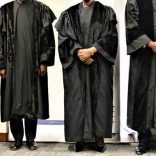
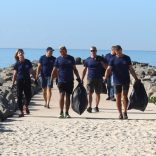
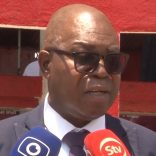

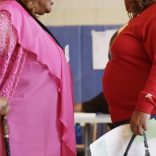




Leave a Reply
Be the First to Comment!
You must be logged in to post a comment.
You must be logged in to post a comment.